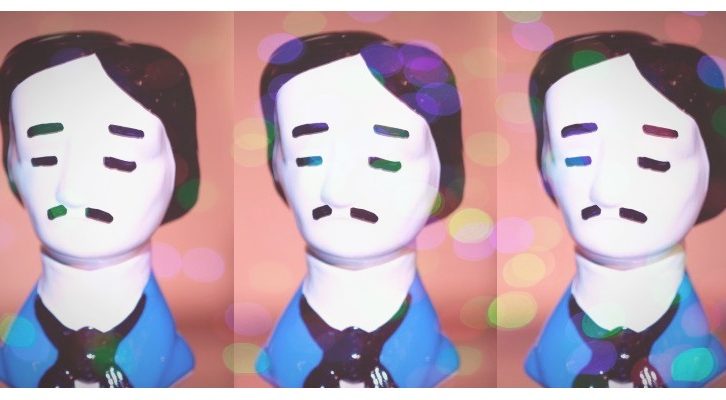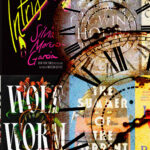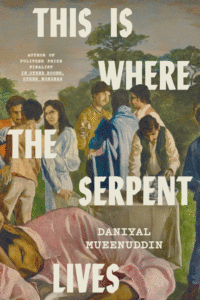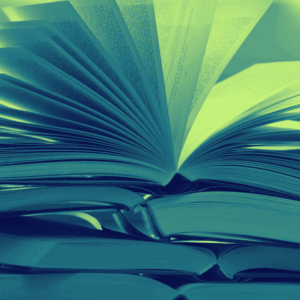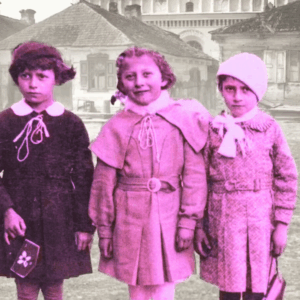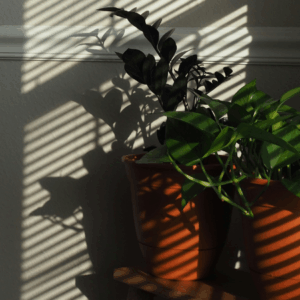
On the Politics of Europe’s New Literary Superstars
Édouard Louis, Yahya Hassan, and Athena Farrokhzad Take on Class,
Race and Politics
A new generation of young European writers is reinventing political literature—and people are listening. Some of the brightest new voices on the continent are making their names through overtly political books, showing that literature, even books of poetry, can still play a significant role in shaping public discourse. This story begins in 2013, with the publication of four books in a short period of time.
In France, Édouard Louis (born 1992) ignited an intense debate on class and inequality with a book about the violence he suffered growing up gay in a working class family (read Louis on the violence of his family, here, via Freeman’s Journal). Finishing Off Eddy Bellegueule, written when Louis was 19, has, to date, sold more than 250,000 copies in France alone. In Denmark, a book of poems by the even younger Yahya Hassan (born 1995), detailing his life as the child of Palestinian immigrants, has remained at the center of public debate for two years, selling 100,000 copies. In Sweden, one of the leading public intellectuals is Athena Farrokhzad (born 1983), an award-winning poet and critic who turned an otherwise harmless summer radio show into a cause celebre after a member of parliament declared her broadcast “a threat to democracy.” Her breakthrough book, White Blight, has just been translated into English.
Albert Camus’s Mersault famously killed an Arab on the beach 70 years ago. As Yahya Hassan, Finishing Off Eddy Bellegueule and White Blight were being picked up by more and more readers, the story of L’Etranger was turned upside down by Algerian writer Kamel Daoud, who published his homage (or rebuke?) to Camus, The Mersault Investigation that same year. A new Europe is taking form in literature, one that reflects the continent’s diversity, and the growing pains that come along with it. This new generation of writers is reshaping the old idea of the artist as political activist, this time with a social media twist.
Édouard Louis’s True Fictions of the French Working Class
Even in the wake of Knausgaard and Ferrante it is hard to find a literary phenomenon that has swept Europe quite like the autobiographical project of Édouard Louis. His debut book, Finishing Off Eddy Bellegueule, has been translated into more than 20 languages, and has been staged in cities across Europe.
The different names on the cover have a simple explanation: Eddy Bellegueule is the author’s birth name, Édouard Louis the name he chose for himself and which he goes by today. But Finishing Off Eddy Bellegueule isn’t another playful exploration of the boundaries between fiction and reality. Instead Louis invokes the political potential of autobiography: the ability to give voice to that which is not publicly acknowledged. He needs to kill himself—Eddy—in order to be himself—Édouard.
The book is set in the writer’s hometown, a working-class village in the north of France abandoned by the industries that have sustained it for generations. A significant portion of the population of Hallencourt, like Eddy’s parents, live on a combination of welfare and part-time employment. This is not the traditional blue-collar working class; it is a post-industrial class, in Marxist terms the disadvantaged “lumpenproletariat” —Louis refers to them as an “invisible” people.
Louis’s evocation of bullying and injustice is both intimate and violent: it is hard not to feel the breath of Eddy’s bullies, to taste their spit on his face, to dread the feel of their fists on his vulnerable body. What makes Eddy Bellegueuele stand out is the apparent ease with which Louis sets an intimate, first-person memoir of violence within a broad philosophical and conceptual framework—all of it in just 150 pages.
Chapter titles like “My Parents’ Bedroom” or “Portrait of My Mother Through Her Own Stories” speak of the book’s distinctive combination of overwhelming intimacy and analytical distance. Almost as if he were a documentary filmmaker observing his own childhood, the novel presents a series of theatrically striking scenes. Being a “tough-guy” is the ultimate masculine ideal in this world, where a typical pastime is to get drunk and play-fight naked with other men to prove, paradoxically, that you’re not gay. Eddy’s body constantly betrays him by striking “effeminate” poses and he falls prey to regular bullying, at school and at the hands of his own family.
In a book that is as good at portraying the social stigma of being gay as it in in conveying erotic desire, Eddy’s sexuality sets him in opposition to the values and homophobic language of his hometown, almost forcing him to rebel. Of the book’s many memorable scenes, Eddy’s sexual debut —at the age of ten—with his cousin, stands out, evoked as a rare form of ecstasy.
Finishing Off Eddy Bellegueule comes across as part angry fist, part open hand. In depicting how his parents scramble to conceal the lack of food, heat or healthcare under a cloak of cynicism, we catch glimpses of their vulnerability, as we do in the way his antagonists repeat the terrible patterns imprinted upon them. But while he sheds his skin and “finishes off” old Eddy, the narrator still marvels at a family that allows his birthday to go by without recognition:, the pain of a child ignored lingers.
It’s Louis’s stated goal to use the language of the lower working class—complete with a full glossary of profanity—to open literature up to people and experiences normally not represented in it. Lines spoken by villagers are set in italics, as if they were quoted material, documented rather than fabricated. The effect is one of cool investigation, as if Louis is the village’s observer, recording its lives and language.
At first glance it may seem like a misery memoir but the book turns out to be a different creature all together, reminiscent of Pierre Bourdieu’s masterpiece of sociology, La Distinction, in which interviews create mini-portraits that gives the thesis—on the social structures of taste—an almost literary character. Indeed, the term that best seems to connect the two levels of Eddy Bellegueule—the lived life and the analysis—is perhaps Bourdieu’s idea of habitus, how the norms and standards we experience on a daily basis turn into bodily habits: the things we do without second thought.
By separating—and perhaps elevating—Eddy’s voice from the other villagers, Louis creates a distance from which the violence can be examined. But this structural approach may also have contributed to the strong reactions to the book. Louis’s critics accuse him of reinforcing negative stereotypes about the class of people he has left. The writer maintains his kind of openness is what’s needed.
“We have made the mistake of confusing love with politics,” he says, identifying what he sees as a widespread romanticizing of the working classes (“You are starving, but you are so authentic!”). Louis points out that working politically for any group doesn’t mean one has to love everything every member of that group does. The idea that only worthy victims are deserving of help he attributes to a groundless meritocracy: There’s no need to prove that people are good and kind to justify doing something about the hardships they endure.
Louis’s line of thinking mixes Marxism with French writers like Simone de Beauvoir, Jean Genet, and Michel Foucault, along with American greats from William Faulkner and James Baldwin to Toni Morrison. Among contemporary thinkers Louis cites the French sociologist and Foucault biographer Didier Eribon as a direct influence. Indeed, the boy from Hallencourt now finds himself at the École Normale Supérieure in Paris, where he edits a series of scholarly publications engaged with the writing of Pierre Bourdieu.
The form he has crafted, blending autobiography with sociology in a novel, may account for Louis’s success with different audiences. Finishing Off Eddy Bellegueule can be read as a classic coming-out story, or as a portrait of a troubled childhood, or even as a traditional tale of revenge by the meek. However it is read, it is already deserving a place in the canon of outsider literature. But it’s also a work that promotes thinking and analysis as the best cure for social and personal pain, delivered as a radical pamphlet about the injustices of an economically stratified Europe.
Seeing his story as documenting a state of affairs and as art, Louis says he sees no difference between a novel and an analysis. And while it clearly stands on the shoulders of influential predecessors his book is also a true child of its time, the age of the autobiographical novel and of the Nobel Prize-winning documentary novels of Svetlana Alexievich. Louis’s take on the form comes with all the possibilities, and all the risks, that go with claiming the novel as an artistic non-fiction genre.
Immigration, Islam, and Poetic Rebellion in Denmark
Louis’s story—of a troubled kid turned literary phenomenon—is mirrored in that of the Danish poet Yahya Hassan. With print runs over six figures his first book, Yahya Hassan is the best-selling collection of poetry in the history of the country of six million.
Hassan was born to Palestinian immigrants in Denmark in 1995, and calls himself “a stateless Palestinian with a Danish passport.” The book caused a stir with its scathing portrayal of violence, crime and oppression in a suburb of Århus, Denmark’s second largest city, detailing the beatings he was subjected to by his father, and his troubled teenage years living in what Hassan provocatively calls “the ghetto,” before ending up at an institution for juvenile delinquents. It was in that very institution that Hassan’s literary talents were discovered, and he went on to become a student at the most prominent writing program in Denmark.
A former rapper, Hassan is a natural-born performer who combines the gravity of the preacher with the flair of the slam poet and presents himself as something of a Byronic revolutionary for the 21st century. The word “ORD” (Danish for “WORD”) is spelled out in a tattoo on his hand, but Hassan doesn’t need help spelling out what he means. He is “fucking angry,” as he told the Danish newspaper Politiken. His poems shout their message, every word printed in capital letters.
The work has not been translated into English, but this eerie recollection of Christmas in a Danish kindergarten, translated by the Los Angeles Review of Books, gives you an idea:
I SAT IN THE WARDROBE WITH A CHRISTMAS DONUT IN HAND
AND LEARNED TO TIE MY SHOELACES IN SILENCE
DECORATED ORANGES WITH DIANTHUS SPICE AND RED BANDS
HANG FROM THE CEILING LIKE PERFORATED VOODOO DOLLS
THAT’S HOW I REMEMBER KINDERGARTEN
THE OTHERS WERE LOOKING FORWARD TO SANTA CLAUS
BUT I WAS JUST AS SCARED OF HIM
AS I WAS OF MY FATHER
The effect of reading this CAPS LOCK poetry is like being permanently yelled at. Hassan has made it clear his poems stem from real experience. The form seems to be a response to a menacing father, and the book reads as traditional literary patricide. The strongest poems are the ones from childhood. In one he is beaten with a belt. The poem describes a pause in the violence, detailing the look on the father’s face as he sits down, lights a cigarette and rests between whippings.
Like Louis, Hassan explores how the most intimate goings-on in a family reflect violent ideas in society at large. But the balancing act—of describing oppressive cruelty within a minority group versus the risk of reinforcing negative stereotypes about that group—has proven even more difficult for Hassan, who goes a step further than Louis in explaining the suffering he endured in cultural terms. Violence perpetrated in the name of religion, as well as a lack of means and education, is the culprit. How Hassan’s diatribes have tapped into debates on immigration, integration and the role of religion, becomes obvious in a poem like this:
YOU DON’T WANT PORK MEAT
MAY ALLAH PRAISE YOU FOR YOUR EATING HABITS,
YOU WANT FRIDAY PRAYER TILL THE NEXT FRIDAY PRAYER,
YOU WANT RAMADAN TILL THE NEXT RAMADAN
AND BETWEEN THE FRIDAY PRAYERS AND THE RAMADANS,
YOU WANT TO CARRY A KNIFE IN YOUR POCKET,
YOU WANT TO GO AND ASK PEOPLE IF THEY HAVE A PROBLEM,
ALTHOUGH THE ONLY PROBLEM IS YOU
Hassan became the first major writer to take on the experience of being a young Muslim in the least well-integrated parts of the immigrant community after the so-called “cartoon wars,” the controversial 2006 publication by Danish newspaper Jyllandsposten of a series of cartoons depicting the prophet Muhammed. In that charged cultural climate Hassan’s statements about Islam have earned him numerous death threats, and there was an attack on his life by a young Palestinian previously convicted of planning a terrorist act. His work has also earned Hassan some unwelcome fans. The anti-immigrant factions have embraced his book, taking it as proof of the negative influence of Islam.
But Hassan’s poetry can neither be read as a statement on immigration, or as a wholesale embrace of mainstream Danish values. His poems cut two ways in exploring the unwillingness by many to accept dual identities and the paradoxical reality of a bilingual child: “IN SCHOOL WE ARE NOT ALLOWED TO SPEAK ARABIC / AT HOME WE ARE NOT ALLOWED TO SPEAK DANISH.” Hassan criticizes Danish complacency in general, especially with regard to its immigrant population: “This country has no interest in making it possible for people like me to get an education,” he told one Danish newspaper. He is also highly critical of the running of the welfare state that put him in a juvenile facility where he says he was subjected to neglect and abuse.
Louis and Hassan appear in some ways to be mirror images: boys who grew up under severe economic, physical and psychological distress, who have sought education and found writing at a very young age, and who have lent their own names to books that deal with disenfranchisement, inequality and social violence turned family violence.
The two even share a somewhat surprising formal inspiration. “Knausgaard showed me it’s possible to make literature that looks nothing like fiction,” Hassan told Norwegian newspaper Morgenbladet, and Louis cites reading Knausgaard as a formative experience: “the radical shock of his form inspired me.” Troubled relationships with controlling fathers unite the three. Yet the long tradition of autobiographical writing as political statement has little to do with the seemingly apolitical Norwegian, who looks to have spawned a school of writing that in its explicit intent to cause social change is remarkably different from his own. Still, the fact that both Hassan and Louis so frequently refer to Knausgaard as a formal inspiration, speaks of a pervasive influence on a generation of writers to come of age in the era of the Knausgaardian strand of autofiction. (When the first volume of My Struggle came out, in 2009, Yahyah Hassan was 14 years old.)
Both have also taken their political involvement beyond books. Édouard Louis published a “Manifesto for an Intellectual and Political Counteroffensive” with the philosopher Geoffrey Lagasnerie, calling on intellectuals to initiate a counteroffensive against what they see as the pervading influence of far right ideologies in mainstream European politics.
Yahya Hassan even made himself into a real politician, running for parliament for Nationalpartiet, a political party established by three Danish-Pakistani brothers in order to fight against the right wing conservative turn in Danish immigration policies. Briefly hailed as the best political speaker in the country, Hassan had to resign from politics after being arrested for driving under the influence. Instead of sticking to the intellectual recipe prescribed by his French counterpart, the young Dane has turned his Facebook page into a virtual reality show where the writer posts battle wounds received in alleged street fights with his persecutors. Hassan was recently charged with gun violence (he claims self-defense against a group of criminal thugs), and started a hunger strike against the conditions of his imprisonment, a turn of events that made him headline news yet again. A landslide of articles describe Hassan’s story in classic rise and fall terms: some see a fame monster where others see a political rebel fighting against a biased justice system.
The Many Voices of One Family’s Migration to Sweden
In the remarkable aftermath of Yahya Hassan, the poet Athena Farrokhzad, who is also a critic for the Swedish newspaper Aftonbladet, opened up a pan-Scandinavian debate on who gets to say what in the public sphere.
The daughter of Iranians who fled the theocratic regime in the 1980s, Farrokhzad is no stranger to the forms of violence—familial and otherwise—described by Hassan. In her writing about Hassan, Farrokhzad praised his poetry for being brave in its will not to romanticize, and striking in its rhythmic intensity, but added, somewhat controversially, that though she shared similar experiences, she could not write about them because, “my perpetrators look like me.”
Farrokhzad didn’t deny Hassan’s right to tell his own truth, but questioned its form, pointing to the obvious risk of such straight-forward poems being co-opted by right-wing anti-immigration forces, and zeroed in on the real dilemma: In a reactionary cultural climate where a violent Muslim father will be read as a reflection on Muslims in general, what are the responsibilities of the writer in how that story is told? Hassan responded by defending his right to make art however he sees fit, without having to calculate its interpretations by extremists. This back and forth between Farrokhzad and Hassan has become the focal point of a larger debate in which the two writers have come to symbolize two opposing schools of thought.
Farrokhzad, though, is no stranger to controversy. As a leading feminist critic, who occupies a commanding presence in the public intellectual life of Sweden, she is unafraid to speak her mind. In 2014, she hosted a traditionally harmless “Summer talk” on Swedish public radio, turning it instead into an hour-long indictment of societal racism and inequality, employing an explicitly revolutionary tone (the theme of the show was a punk song called “Arm Yourselves”). The broadcast was met with a record number of complaints, and a member of parliament accused Farrokhzad of inciting violence. Farrokhzad’s invitation to take over an hour of Swedish radio had come as a result of the success of her debut book White Blight (in English from Argos Press, translated by Jennifer Hayashida), which had been hailed by critics for both its formal accomplishment and its passionate, witty take on the complexities of moving between languages and cultures. (Read Athena Farrokhzad’s new poem, “Letter to a Warrior,” from the latest issue of Freeman’s.)
The book opens on a poem in which a strong “I” speaks about her family’s arrival in a new country. Like Hassan, Farrokhzad uses imagery related to Scandinavian Christmas traditions to address the way the first generation of immigrants experiences integration. Except Farrokhzad’s poem seems to call out the parents for being too eager to assimilate:
My family arrived here in a Marxist tradition
My mother immediately filled the house with Santa knick-knacks
Weighed the pros and cons of the plastic Christmas tree
As if the problem were hers
During the day she distinguished between short and long vowels
As if the sounds that came out of her mouth
Could wash the olive oil from her skin
My mother let bleach run through her syntax
On the other side of punctuation her syllables became whiter
than a winter in Norrland
This first poem, which voices resentment towards the older generation, turns out to be more prologue than thesis, establishing an “I” to which all the other voices in the book are connected, but which is itself changeable. In turn, the voices of family members appear—“My mother said,” “My brother said,” “My grandmother said”—in a collection which can also be read as one long narrative poem, or even a drama (it has been staged as a play). Far from creating a structure of simple oppositions, the voices are given equal weight, shifting from what seems like satire, to truth, often playing with the form of aphorism.
My grandmother said: Write like this
Mothers and languages resemble each other
In that they incessantly lie about everything
Together the different voices create a poetry of continuous contradiction.
My father said: The one who travels is redundant to the place they came from
My mother said: The one who travels think they are essential to the place they come to
My father said: The one who travels is redundant to the place they come to
My mother said: The one who travels thinks they were essential to the place they came from
My uncle said: The one who travels knows nothing about place
The debate on what a traveler is has no end—in White Blight no voice ever steps in to decide an argument. Where Hassan’s poems represent a single perspective, of all-caps anger, Farrokhzad’s poetry embodies the heterogeneity of one family’s experience traveling from one place, one culture, one mode of being, to another. The difference between Farrokhzad’s and Hassan’s approach to poetic form—one starkly direct, the other staging a testing ground for different perspectives—is emblematic of the opposing strategies and arguments in the larger debate about assimilation, integration and immigration.
Taken together, the three books by Hassan, Farrokhzad and Louis form a kind of primer on questions of representation, visibility and responsibility in contemporary European society. In her critique, when Farrokhzad asks of Hassan, “What responsibility do you assume when speaking of problems within a minority that is hardly ever represented at all?” she could be asking the question of all three writers. And while their answers have differed widely there is potential for common ground in Louis’s insistence on not mixing love and politics. Farrokhzad’s review ends on a note of dialogue that opens rather than closes that debate:
I hope some day it will be possible to tell all. Until then I’d like to call Copenhagen and say, Hey Yahya, I admire your style and your courage, but when it comes to the models you use as explanations, I’m a skeptic. Do you understand I’m afraid you’re feeding the fire that will destroy us? What will you write next? Can’t we meet in Stockholm when your book is translated? I can’t stop thinking about what this society has done to us, and what we are going to do about it.
Relaxed revolutionaries
What we are going to do about it. That’s the issue. These three writers all seem to take it for granted: It is up to them as citizens, it is up to art as a form, and it is therefore up to them as artists, to change things.
Like all writers they deserve to be read for the quality of their own work, and the books certainly warrant it. Still, reading these three it’s hard not to feel something is going on that transcends individual texts.
After decades where the most prominent writers in European literature have often preferred to see political issues as, at best, an incidental topic of literature, it seems significant that the major literary breakthroughs in three different European languages in a short period of time have come from writers who are overtly political. And just as important: That there’s an attentive audience for this kind of writing. There is no denying media coverage, lawsuits and public controversy have played a role in the reception of all three, but without their work voicing experiences people relate to, it’s hard to picture them capturing the attention of so many diverse readers and critics. It’s tempting to draw a parallel between the rise of these young radicals and millennial enthusiasm for the revolutionary promises of Bernie Sanders’s recent campaign—both appear to be responses to inequalities too large to be ignored.
As writers, Louis, Hassan, and Farrokhzad also invigorate the public sphere. All three are as unapologetic about taking center stage in public debates as they are about perceiving literature as part of a bigger political endeavor: to point to injustice and ask for the remedy.
They speak of the necessity of looking critically at political language—who gets to talk and from where—as essential to their literary projects. All three challenge stereotypes and resist simple identity politics. All three take on big issues— gender, class, race, religion—through fiercely individual forms of expression, while advocating collective change with a 1960s-like energy that treats the everyday as highly political and infused with meaning. While Hassan and Louis are explicitly biographical in their approach in a way that Farrokhzad is not, all seem to embrace, in updated fashion, the idea of the personal as political.
In addition, all of them reinforce the effect of their writing with strong public appearances. All three draw packed houses, and are unusually stage savvy. Yahya Hassan’s readings are performances; some poems are read in a “robotic” voice, lending a tone of alienation, others take the form of a sermon or a rap-inspired chant. Athena Farrokhzad brings to her readings and performances the broad range of someone who is at once a critic, a teacher, a translator and a playwright and who excels in creative collaborations across genre, geography and language. And Édouard Louis combines a candid warmth regarding his personal history with a wide knowledge of literature and philosophy.
All express a marked interest in literary traditions, and seem more interested in seeing themselves in a line of thinkers, writers, even political activists, than in distinguishing themselves by underlining their difference from the past, “anxiety of influence”-style. If there is an aesthetic reorientation going on here, it doesn’t take the form of calls to “make it new” or lofty statements about change. In fact the generational perspective of this essay would most likely be rejected by the writers mentioned in it. Neither of them seem particularly interested in the idea of the new or the young, or even the unique and original as the highest values of artistic creation. Louis states the case when he criticizes the canon of outsider literature for how its protagonists are traditionally portrayed as “so unique, so gifted, so different from the environment they were predestined to escape.”
They also seem more concerned with the kind of belonging that takes place within a tradition of thinking or writing or art, than the kind that comes from being born in one place or into a particular social group. Louis and Farrokhzad especially are outspoken internationalists. Farrokhzad just released a new book, Trado, in which she collaborates with the award-winning Romanian poet Svetlana Cârstean. In this bilingual book of original poetry the two writers feature translations between the Swedish and the Romanian in a single volume, inventing their own philosophy of translation along the way.
But all three aim at breaking down language barriers. Whether it be between Swedish and Romanian, between the speech of the working class and the bourgeoisie, or between the language of the majority and the immigrant minority, the endeavor to mix languages normally not used on the same page is part of larger project aimed at crossing boundaries and scaling walls in order to build new political collectives.
Read together White Blight, Yahya Hassan and Finishing Off Eddy Bellegueule stand out as conceptual works in which different voices are left to play out diverging interests relating to similar positions in the real world. Confronted with these works the reader becomes the interpreter of struggles for dominance: whose story, whose perspective is to be seen and heard?
The ability to read and to interpret different views is what we as readers are charged with in these books. And in that lies their most direct political potential. Read together they can be seen as exercises in the necessity of negotiating our worlds of difference, of being able to listen to and to balance dissenting voices. Without falling prey to relativism, these books are asking us to fine-tune our instruments of discernment and moral judgment, as well as our capacity for empathy, to open up for contrasting experiences before we judge them. Those are necessary skills that go way beyond the covers of a book.
Ane Farsethas
Ane Farsethås is a critic and editor at Morgenbladet, one of Norway’s oldest newspapers, and the author of a book on contemporary Norwegian literature, From Here to Reality (2012).











